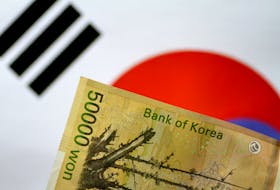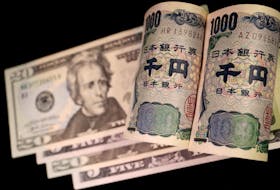BERLIN (Reuters) - The trade deal struck by the United States and China will divert trade away from European exporters, experts said on Tuesday, and Germany is likely to be affected the most.
Washington and Beijing last week reached a truce in their 18-month trade war, which slowed global economic growth and increased business uncertainty. The initial agreement calls for China to buy more U.S. goods and services.
The Phase 1 agreement will redirect global trade flows and cut demand for European goods worth nearly $11 billion, said Gabriel Felbermayr, president of the Kiel Institute for the World Economy.
The European Union is now checking to see whether the agreement complies with the rules of the World Trade Organization (WTO).
"Among the EU countries, Germany is particularly affected, and among the sectors, especially aircraft and vehicle manufacturing," Felbermayr said.
The agreement also undermines the WTO's basic principle of non-discriminatory trade and relies instead on bilaterally agreed trade volumes, he said.
"China, which has repeatedly insisted on the values of the multilateral system, is thus making itself an accomplice in the violation of the core principles of the WTO," Felbermayr said.
The trade pact calls for China to import $95 billion more of certain U.S. goods in 2021 as in 2017, or twice as much, according to calculations by Felbermayr and trade expert Sonali Chowdhry.
In manufacturing alone, China's imports from the United States are expected to increase by almost $33 billion this year and by almost $45 billion next year compared with the base year of 2017, before the trade war began.
"The EU, which accounts for about one fifth of Chinese manufacturing goods imports, is particularly vulnerable to trade diversions in this area," Felbermayr said as manufacturing accounts for all the top 10 product groups that China imports from the EU.
In absolute terms, the biggest losers in the EU are the manufacturers of aircraft ($-3.7 billion), vehicles ($-2.4 billion) and industrial machinery ($-1.4 billion). "The affected industries are mainly located in Germany, but France has also been hit considerably", Felbermayr said.
Germany's economic growth slowed last year to 0.6%, its weakest since 2013, as manufacturers faced were hit by trade disputes and less foreign demand.
Germany's BDI industry association has said there are no manufacturing growth is improving and it expects overall German growth to slow further this year.
(Reporting by Michael Nienaber,)









